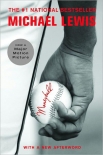Moneyball by Lewis, Michael (books to read in your 30s TXT) 📗

Book online «Moneyball by Lewis, Michael (books to read in your 30s TXT) 📗». Author Lewis, Michael
“What are his expectations?” Erik Kubota asks, of a promising college pitcher.
The scout who knows him best says, “His dad said, and I quote, ‘$4.2 million is a good place to start.’”
“Put him over there,” Erik will say. When his name is tossed onto the dump heap nobody in the front office cares.
By the end of the third day the scouts have organized the players into two groups: the prospects not worth considering further, and everyone else. The second group, maybe four hundred players, they parse further by position. They’ll rank 120 right-handed pitchers; they’ll list 37 catchers, 1 through 37, and 94 outfielders, 1 through 94. But before they do, they turn their attention from eliminating players to selecting them. Billy’s already made it clear that this year he has only a secondary interest in pitchers. The past few years he has stocked up on arms. It’s the bats he needs. On the white board closest to Billy, the “Big Board,” there was space for sixty players. Only one slot had been filled, the first:
SWISHER
Nick Swisher, a center fielder from Ohio State. For the past six months, Billy’s been sure about Swisher, and he knows he won’t get the slightest disagreement from his scouts. Swisher is a rare point of agreement between Paul’s computer and the internal compass of an old baseball guy. He has the raw athletic ability the scouts adore; but he also has the stats Billy and Paul have decided matter more than anything: he’s proven he can hit, and hit with power; he drew more than his share of walks.
Oddly enough, Billy has never actually seen Swisher play. He had wanted to fly across the country to watch a few of Swisher’s games, but his scouting department told him that if he did, word would quickly spread to the rest of Major League Baseball that Billy Beane was onto Nick Swisher, Swisher’s stock would rise, and the odds that he’d still be around when the A’s made this first pick—the sixteenth of the draft—would plummet. “Operation Shutdown,” the scouts called their project to keep Billy as far away from Swisher as they could.
Operation Shutdown has had some perverse effects. One of them is to lead Billy to speak of Swisher in the needy tone of a man who has been restrained for too long from seeing his beloved. Swisher is his picture bride.
“Swisher is noticeable, isn’t he?” says Billy, hoping to hear more about what Swisher looks like. How Swisher really is.
“Oh, he’s noticeable,” says an old scout. “From the moment he gets off the bus he doesn’t shut up.”
“His background is interesting,” says Billy. “His dad was a major league player. That’s huge. A great chip in his favor. Those guys succeed.” (Swisher’s dad is Steve Swisher, who caught for the Cubs, Cardinals, and Padres.)
“He does have a presence,” agrees an old scout.
“Did Operation Shutdown work?” asks Billy.
“Too well,” says an old scout. “Guy from the White Sox called me yesterday and said he knows you must be in love with Swisher because you haven’t been to see him.”
Billy laughs. “Out of this room, Swisher is hush-hush,” he says.
The conversation turns from Nick Swisher, and the moment it does it becomes contentious. Not violently so—these are people with an interest in getting along. The tone of the conversation is that of a meeting in a big company that has just decided to drop a product line, or shift resources from marketing to R&D. Still, it’s a dispute with two sides riven by some fundamental difference. The two sides are, on the one hand, the old scouts and, on the other, Billy Beane. The old scouts are like a Greek chorus; it is their job to underscore the eternal themes of baseball. The eternal themes are precisely what Billy Beane wants to exploit for profitby ignoring them.
One by one Billy takes the names of the players the old scouts have fallen in love with, and picks apart their flaws. The first time he does this an old scout protests.
“The guy’s an athlete, Billy,” the old scout says. “There’s a lot of upside there.”
“He can’t hit,” says Billy.
“He’s not that bad a hitter,” says the old scout.
“Yeah, what happens when he doesn’t know a fastball is coming?” says Billy.
“He’s a tools guy,” says the old scout, defensively. The old scouts aren’t built to argue; they are built to agree. They are part of a tightly woven class of former baseball players. The scout looks left and right for support. It doesn’t arrive.
“But can he hit?” asks Billy.
“He can hit,” says the old scout, unconvincingly.
Paul reads the player’s college batting statistics. They contain a conspicuous lack of extra base hits and walks.
“My only question is,” says Billy, “if he’s that good a hitter why doesn’t he hit better?”
“The swing needs some work. You have to reinvent him. But he can hit.”
“Pro baseball’s not real good at reinventing guys,” says Billy.
Whatever happened when an older man who failed to become a big league star looks at a younger man with a view to imagining whether he might become a big league star, Billy wanted nothing more to do with it. He’d been on the receiving end of the dreams of older men and he knew what they were worth. Over and over the old scouts will say, “The guy has a great body,” or, “This guy may be the best body in the draft.” And every time they do, Billy will say, “We’re not selling jeans here,” and deposit yet another highly touted player, beloved by the scouts, onto his shit list. One after another of the players the





Comments (0)